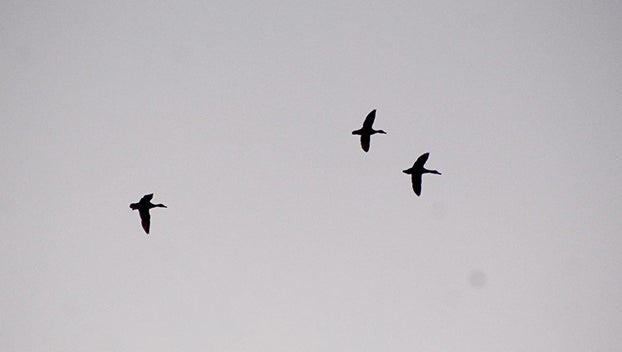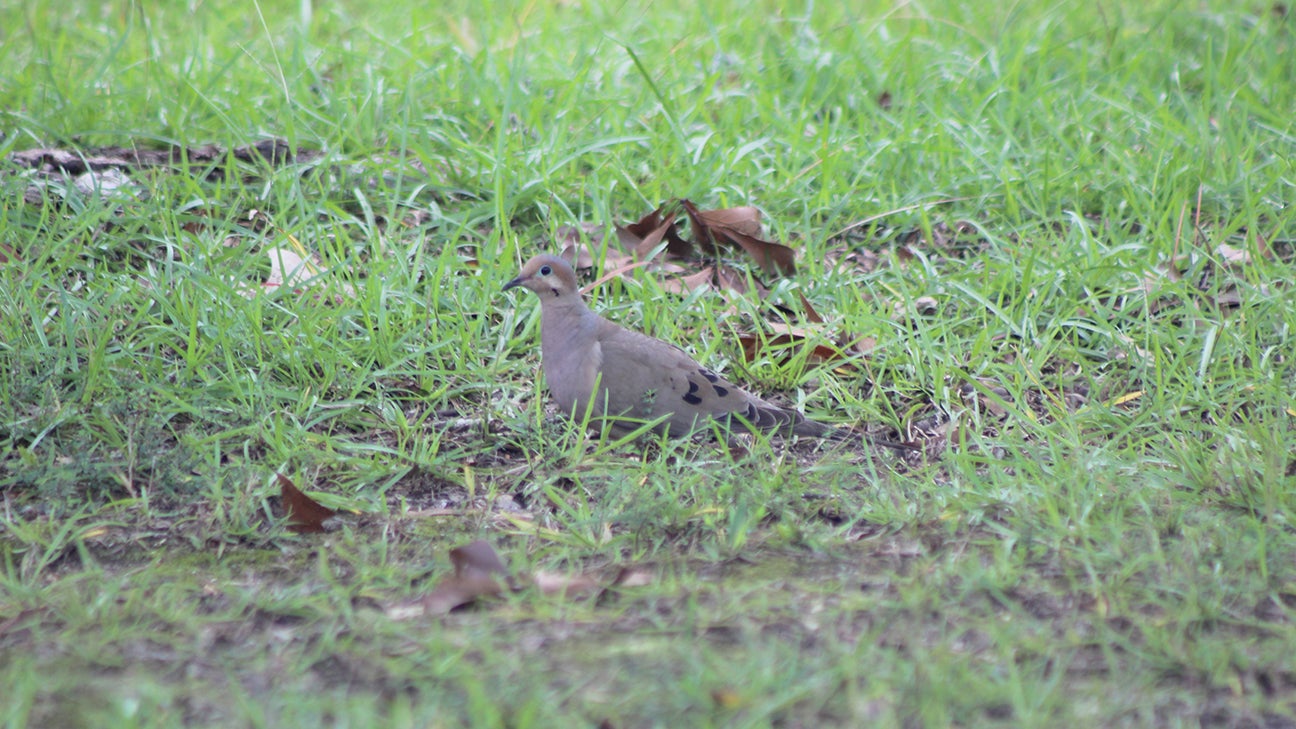Bird flu returns to Mississippi
Published 7:22 am Friday, December 22, 2023

- Three ducks fly over St. Catherine Creek National Wildlife Refuge south of Natchez. (File Photo | Hunter Cloud)
JACKSON — Waterfowl migrating south for winter have carried Highly Pathogenic Avian Influenza with them. Mississippi Department of Wildlife, Fisheries and Parks reports positives have been detected for the first time since September this duck season.
Avian influenza is caused by the influenza type A virus which can infect poultry (such as chickens, turkeys, pheasants, quail, domestic ducks, geese, and guinea fowl) and wild birds (especially waterfowl). Houston Havens, MDWFP Waterfowl Program Coordinator, said it spreads primarily through fecal and oral transmission in an interview last year.
All of these positives were hunter harvested birds in Issaquena County. A Gadwall, two northern shovelers and a green-winged teal tested positive for HPAI. The United States Department of Agriculture Animal and Plant Health Inspection Service reports 631 cases of HPAI have been detected in wild birds across the nation in the last 30 days.
Havens said the positives were detected earlier in December but were finally confirmed by the National Wildlife Disease Program lab.
Fortunately for Mississippi poultry producers, no cases of HPAI have been detected in commercial flocks yet. Although there is still a risk of the avian influenza spreading to commercial birds.
Here is what hunters can do to prevent the spread of HPAI.
Waterfowl Hunters:
- Only harvest birds that act and look healthy.
- Do not eat, drink, or smoke while handling harvested birds.
- Process harvested birds outdoors or in a well-ventilated area.
- Wear disposable gloves while processing harvested birds.
- Wash hands, utensils, and work surfaces before and after processing birds, as well as before and after handling uncooked meat.
- Keep harvested birds cool until processed, then refrigerate, freeze, or cook to an internal temperature of 165 degrees.
Disposing of bird carcasses:
- Dead birds should not be handled with bare hands. Maintain a physical barrier.
- To collect or remove dead birds from the environment:
- Pick up the bird with doubled plastic bags that have been turned inside out.
- Then, invert and seal the doubled plastic bag with the bird inside.
- To dispose of the bird:
- Place the bag in household garbage.
- As an alternative, bury the dead bird (no bag) by handling the bird with a shovel.
- Wash hands thoroughly with soap and water.





